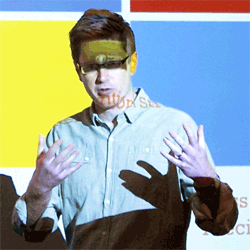
Department of Philosophy at the
University of Sussex
Dr Keith Wilson works in the Department of Philosophy at the University of Sussex as a Lecturer and Tutorial Fellow. Keith completed his PhD at the University of Warwick, where he undertook an exchange with Columbia University in New York for one semester during his penultimate year.
When Keith applied to the University of Warwick for his PhD he was delighted to find that the philosophy department had existing links with Columbia University. The possibility of an exchange visit was discussed at this early stage.
“The idea of going to New York for an exchange visit really appealed to me. The universities there have a reputation for academic excellence in philosophy, and many eminent philosophers are based there, several of whom focus on my specific area of research – the philosophy of mind. I had always wanted to go to New York and the exchange provided the opportunity both to broaden my academic horizons and to see the city.”
Sorting out the funding for any exchange visit is essential and Keith was fortunate in that his fees were paid because this was an existing scheme that the University of Warwick had organised.
“Tuition fees at a private university like Columbia are prohibitively expensive and so having my fees paid by the University of Warwick made the exchange possible. The Department of Philosophy at Warwick contributed some funds that covered the cost of private medical insurance, which was required by the university, but I had to find the money for everything else myself, including flights and accommodation. This totalled around £5,000 for my four-month stay.
“Planning ahead is vital and my advice would be to start the process about a year in advance. The first stage in the process is to submit an application to the institution you want to visit. You need to supply references and a personal statement explaining how the exchange will benefit your studies. The accepting university wants to be sure that you’ll be motivated and able to work once you are there. My offer of a place was based on this.
“The second stage is applying for a visa, which is essential for visiting the US for more than three months. The visa application requires you to provide information about your accommodation arrangements, which you will need to sort out before you apply, although in my case this was not possible.”
Finding affordable accommodation in New York is not easy, and when Keith first arrived he stayed in a hostel before finding a shared apartment close to the university.
“The university had a website with accommodation listings and I was able to find somewhere quite quickly this way. But getting off the plane without knowing where I was going to be living was quite terrifying! In the end I needn’t have worried as I found a great place, which made a huge difference to my stay.
“Once I arrived in New York, Columbia University was really supportive and helped to organise my student registration and other administrative requirements. The universities in New York operate on a collegiate system, which meant that I could attend lectures or seminars at universities other than Columbia, including New York University and the City University of New York. This made it easy to meet other graduate students and I ended up making a lot of new friends. This made the initial disorientation easier to bear, and my initial feelings of homesickness soon passed.
“Undertaking an exchange visit during my PhD was an incredibly positive experience for me. I found the intellectual climate in the US quite different from the UK and learnt to approach familiar problems from an alternative perspective. This provided me with lots of inspiration and a clearer idea about the kind of philosophy that interests me. In the US, philosophers of mind tend to place more emphasis upon empirical research, and learning about psychology and neuroscience is an important part of the discipline. I came back to the UK with a different perspective and with my future direction clarified.”
Making the most of your academic exchange also means enjoying the social and cultural life of the place you are visiting. Keith was fortunate in that Columbia University organised various trips for overseas students, including a weekend visit to Washington, DC.
“It’s important to take advantage of all the opportunities your exchange visit offers. Visiting a different country and culture was one of the highlights of my PhD, and even though I’m not really a city person I loved New York, which is an amazing place. I had a wonderful time there and would recommend the experience to anyone. I found New Yorkers to be incredibly friendly and open, and I still keep in touch with many of the friends I made there.”
Keith’s top tips for organising a PhD exchange visit
- Plan ahead and start the application process around a year before you intend to go
- Apply for your visa (essential for the US) 6 months in advance
- Consider carefully the best time to undertake your exchange visit so as to minimise disruption to your PhD studies
- Establish contact with a suitable supervisor before leaving the UK who will have sufficient time to help you with your research
- Ensure you know your registration status at your host university before you arrive – e.g. Visiting Student, Exchange Student or Visiting Scholar
Social networking sites such as Twitter can help you to establish links with overseas academics and other students before you travel, making it easier to build friendships.




Leave a Reply